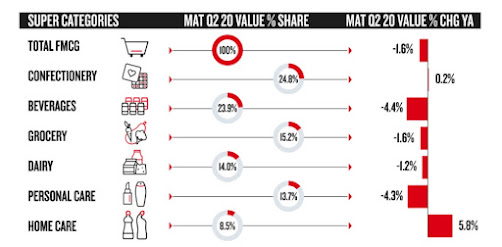How did COVID-19 change the Egyptian consumer? Thoughts about the future of online shopping
It was the beginning of 2020, as the ordinary everyone in Egypt started their year with hopes and plans, Maybe travel somewhere spend a vacation, no one saw what was coming when by the second month of 2020 we started hearing about coronavirus cases in China and kept spreading to other countries, and we still had some childish hope that it doesn't get too us, till that's it; By March 2020, it was announced as a global pandemic and since then our lives have turned upside down.
Starting lockdown, many people
working from home, children are studying from home, many businesses had to
close for the lockdown, an economic recession is waving at the horizon, these together must affect the Egyptian consumer, how they would
respond to these changes happening around him.
So how did the Egyptian consumer
respond to that? What are the changes to his purchasing behavior? This was the
quest for business leaders to cope with the current situation and learn where
to go from there.
When it comes
to consumer spending, unlike what is expected, according to the ministry of
planning Consumer Spending in Egypt increased to 1193 EGP Billion in the second
quarter of 2020 from 1162 EGP Billion in the first quarter of 2020, However,
the categories where they spend have changed; there has been a shift from
discretionary goods (make-up, perfumes) to increase in essentials (household,
food & beverages). A Neilsen report has monitored the purchasing in the
FMCG industry, by June 2020 there was a spike up in homecare products (house
cleaning items) by almost 6% and medicine purchasing while food categories
declined, this happened although the continued rise in prices which was
probable driven by fear of pandemic “panic-buying” as the report states.
The obvious thing is e-commerce is booming, although there are 50 million internet users in Egypt, 8% only of them use e-commerce, in Egypt by the end of March there has been an increase in downloading online shopping apps by 80%, even for groceries. But with the spread of the virus and the precautionary measures, the volume of e-commerce is expected to increase by at least 50% in the coming period according to a government study, especially in the cases of the pandemic, for instance, high-risk groups like the elderly and pregnant women they use e-commerce to avoid getting infected if they went to the supermarket for instance; with this fear showed an increase of health products bought by e-commerce " increase face mask sales by 590%, hand sanitizer purchases up 420%, gloves by 151%, and soap by 33%”
Considering digital consumer behavior, with many starting working from home, there has been a growth in downloading productivity apps by 133% in Egypt till April 2020, and all that comes with a needed environment for home working "increased 103% for chairs and office supplies and 31% for computers and its accessories" till April 2020, and speaking of apps, of course, no need to say that zoom by end of March 2020 became the second top app in apple store in Egypt, we can't deny as zoom also confirms people have even been using virtual meetings instead of real-life face to face meetings.
When I reflect on the previous information and think about how COVID-19 affected my consumption patterns, I found that I have followed the same patterns as Egyptian consumers; It is like there has been a shift in my mindset into digitalization, for instance, when it comes to meetings, Zoom app became the first solution I think of even to explain a 10 minutes example, even when restrictions are loosening up now, personally, I have been more able to explore online learning on MOOCs, which on the past I could never finish a course. Besides these when I think of my consumer behavior, I have been into every e-commerce app that there is, even if I could use the phone, for example using Talabat® and Tayary® for food delivery, Instashop® for all my groceries and lastly I have been using Khodar.com® for even fresh fruits and vegetables and replacing the neighborhood small local markets.
COVID-19 has fast-forwarded the consumer behavior traits for e-commerce and digitalization. It remains a question when this pandemic ends, will people return to physical interaction in services? From the previous reflections and numbers, I doubt it.
Sources:
·
Kijami
COVID-19 effects insights March-April 2020
·
Neilsen:
How FMCG in Egypt has shifted and how to win in the wake of covid-19 – December
2020
·
Trading
economics: Egypt Consumer Spending, https://tradingeconomics.com/egypt/consumer-spending
·
Daily
news: Government study projects 50% growth in e-commerce amid COVID-19, https://dailynewsegypt.com/2020/06/20/government-study-projects-50-growth-in-e-commerce-amid-covid-19/
·
Societe
Generale, Egypt: the market, https://import-export.societegenerale.fr/en/country/egypt/ecommerce



Comments
Post a Comment